In simple words, mulch is basically a protective cover. Made from dried leaves, bark, or compost, mulch is spread around trees or plants in order to enrich or insulate the soil. Not only does mulch help enrich the soil but also helps prevent the growth of weeds and helps keep pests away from plants.
While you can, of course, buy commercially-produced mulch, there are a few ways that you can make your own mulch that will undoubtedly be more cost-effective & fast!
If you're still unsure about what mulch can do for your plants, here are a few benefits of mulching:
• Benefits of Mulch for Gardening
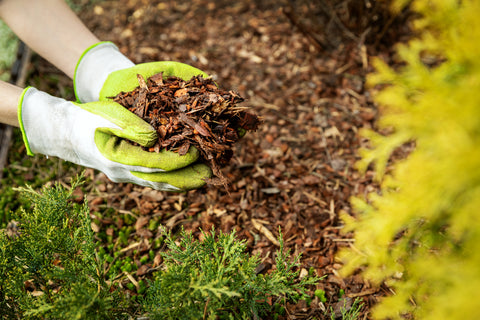
1. Moisture Retention
Mulch helps to retain moisture in the soil, reducing the need for frequent watering and. So, if you feel like you might be underwatering your plants, mulching can give you some kind of relief by retaining water, ensure that your plants never have to go without water.
2. Weed Suppression
By covering the soil surface, mulch helps to suppress weed growth by blocking sunlight and preventing weed seeds from germinating.
3. Soil Temperature Regulation
Mulch acts as insulation, keeping the soil cooler in summer and warmer in winter, which promotes healthier root growth and overall plant vigor.
4. Soil Erosion Prevention
Mulch helps to prevent soil erosion by reducing the impact of heavy rain and wind on the soil surface.
5. Nutrient Enrichment
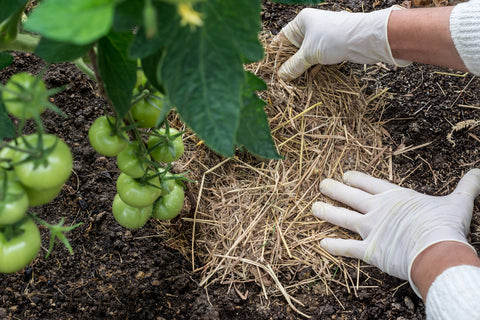
Organic mulches such as compost mulch and mulch from leaves gradually decompose, releasing nutrients into the soil and improving soil fertility.
6. Enhanced Aesthetic Appeal
Mulch gives garden beds a neat and tidy appearance, enhancing the overall aesthetic appeal of the garden or landscape.
• Types of Mulch
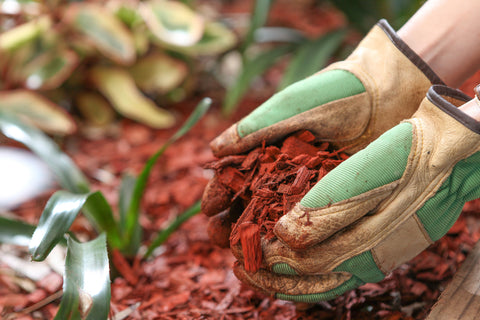
1. Organic Mulch
Made from natural materials such as leaves, grass clippings, straw, compost, bark, and wood chips. Organic mulches provide additional benefits such as soil improvement and nutrient enrichment.
2. Inorganic Mulch
Includes materials like stones, gravel, and plastic sheeting. While inorganic mulches don't decompose or contribute nutrients to the soil, they can be effective at suppressing weeds and conserving moisture.
• How to Make Mulch from Scratch
1. Making Mulch from Leaves
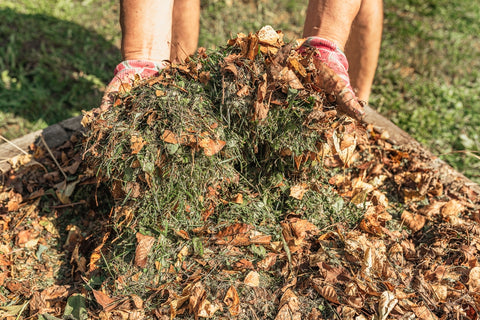
Making mulch from leaves usually includes some kind of equipment like a shredder. But that comes later, of course. Initially, you need to start by collecting and saving all the leaves that may fall in your garden or all the leaves that you prune.
In this case, what you need to remember is that you must avoid using leaves from walnut or eucalyptus trees as they can hinder the growth of your plants. However, once you've gathered all your leaves, you can make use of a lawnmower or a shredder to shred all your leaves.
This kind of organic mulch is beneficial for your garden as it creates an organic compound that benefits your garden by enriching the soil, while also retaining moisture and suppressing weed growth.
2. How to Create Your Own Mulch: Organic Mulch Combinations
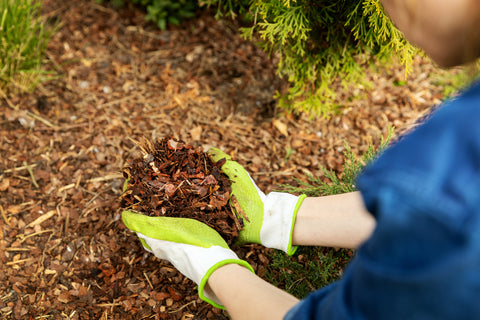
As mentioned before, mulch isn't necessarily made only from one material. While leaves tend to be a big part of organic mulch, there are many other materials that make it what it is.
Organic mulch can comprise of tree bark, other trimmings from branches, and various fallen parts of plants. You can make use of all these materials in combinations that work very well for enhancing plant growth and soil health.
You can simply collect tree bark from trees and other parts of branches that have fallen down. But these will have to be put through a chipper in order to be usable as the pieces are otherwise too big.
• Things to Remember:
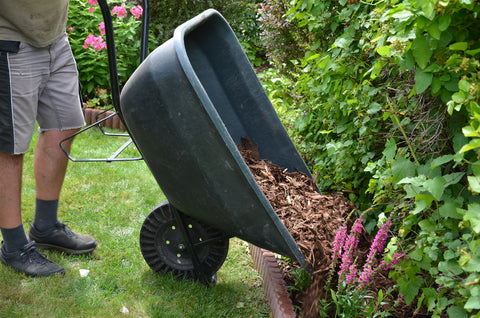
a. Wood is good as long term mulch as it decomposes much slower than other materials such as dried leaves.
b. However, wood is good when used for established and settled plants. It should not be used with young plants as it can suppress their growth.
c. Wood or bark mulch can be used by itself or can be mixed with mulch from leaves.
• Mulch for Potted Plants
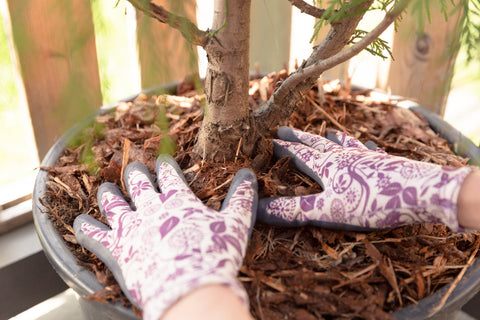
Organic mulch that you make on your own is good to be used for potted plants as well. As many benefits as it has for garden plants outdoors, it has the same kind of benefits for potted plants too! However, you must remember that the layer of mulch should be in proportion with the depth of the pot.
Ideally, the mulch layer should not be thicker than 4 inches and wood or bark mulch should not be used for young plants to ensure that their growth is not hampered.








